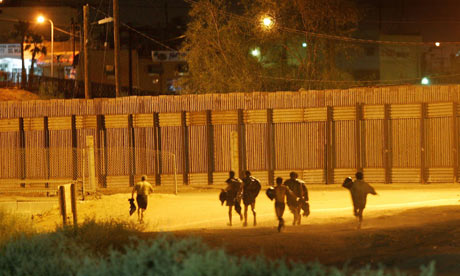Bullfighter
Rookie
- Jun 10, 2010
- 2,164
- 113
- 0
- Banned
- #1
(CNN) -- The U.S. State Department has renewed a travel warning for Mexico due to drug-related violence, particularly in the northern border areas.
In addition, the authorized departure of family members of U.S. government personnel from consulates in the cities of Tijuana, Nogales, Ciudad Juarez, Nuevo Laredo, Monterrey and Matamoros remains in place.
"Recent violent attacks and persistent security concerns have prompted the U.S. Embassy to urge U.S. citizens to defer unnecessary travel to Michoacan and Tamaulipas, to parts of Chihuahua, Sinaloa, Durango, and Coahuila, and to advise U.S. citizens residing or traveling in those areas to exercise extreme caution," the July 16 State Department warning says.
The United States previously issued a travel warning on May 6.
U.S. warns of Mexico travel - chicagotribune.com
--------------------------------------------------
Hmmm? Why doesn't Homeland Security offer warnings to Americans before traveling through Mexican neighborhoods in the US?
In addition, the authorized departure of family members of U.S. government personnel from consulates in the cities of Tijuana, Nogales, Ciudad Juarez, Nuevo Laredo, Monterrey and Matamoros remains in place.
"Recent violent attacks and persistent security concerns have prompted the U.S. Embassy to urge U.S. citizens to defer unnecessary travel to Michoacan and Tamaulipas, to parts of Chihuahua, Sinaloa, Durango, and Coahuila, and to advise U.S. citizens residing or traveling in those areas to exercise extreme caution," the July 16 State Department warning says.
The United States previously issued a travel warning on May 6.
U.S. warns of Mexico travel - chicagotribune.com
--------------------------------------------------
Hmmm? Why doesn't Homeland Security offer warnings to Americans before traveling through Mexican neighborhoods in the US?



